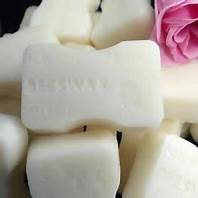What is collagen and why is it so popular in the beauty industry?
![]()
![]()
![]()
![]()
![]()
![]()
![]()
![]()
![]()
![]()
![]()
![]()
![]()
![]()
![]()
![]()
![]()
![]()
![]()
![]()
What is collagen and why is it so popular in the beauty industry?
The protein gives our bodies elasticity and resilience, and there’s always a market for products promising to turn back the clock
Collagen is the most abundant protein in the human body. It makes up 60% of our cartilage and accounts for 70 to 80% of the dry weight of skin, also featuring in other connective tissues such as tendons, muscles and bones.
It gives our bodies elasticity and resilience, but its production slows down as we age, leading to more aches and pains and making us look older and more wrinkly. Factors such as sun exposure and smoking, along with chronic stress, lack of sleep or exercise, can speed its decline.
The desire to mitigate these ageing effects has contributed to a global industry estimated to be worth $4bn (£3.32bn) in 2022. There are 28 different types of collagen, and collagen products range from texture-enhancing food additives and meat casings to health supplements and beauty products.
Collagen can be sourced from pigs, chicken and fish – but collagen from cows makes up 34% of the market. Grand View Research attributes this to “the high availability of cattle and lower prices”.
For anyone lamenting the loss of suppleness in their skin, a nicely packaged cream loaded with collagen might seem worth a try, but it’s unlikely the ingredient will be effective in this form.
Topical collagen would need to penetrate deep beneath the skin’s surface to be useful, but its fibres are too large to get through the outer layer. Despite the science, however, it remains a popular product at beauty counters, with all the big brands including it in their ranges.
Collagen types I, II and III are the most important in skin and musculoskeletal health. They can be found in a rapidly expanding range of oral supplements, usually in capsules or as loose powder, in forms that are broken down and easy to digest, known as “hydrolised collagen” or “collagen peptides”.
US actor Jennifer Aniston, who calls collagen “the glue that holds everything together”, is chief creative officer of Vital Proteins, a brand whose collagen powder she says she has been using for years. But the Guardian investigation has revealed that this Nestle-owned company’s supply chain is linked to farms involved in deforestation.

While there are promising studies associating taking collagen orally with improved joint and skin health, Harvard School of Public Health cautions potential conflicts of interest exist as most if not all of the research is either funded by the industry or carried out by scientists affiliated with it.
Collagen has long been injected into the skin to fill wrinkles and plump lips. However, it has now largely been replaced by hyaluronic acid fillers which, unlike collagen, break down after a few months and carry less risk of an allergic reaction.
There are supplements labelled “vegan collagen” that don’t contain actual collagen. What they mean is that they are vegan alternatives that contain vitamins and minerals that may help jumpstart our own collagen production, or the same amino acids found in collagen, from plant sources.
Reference: the Guardian:
Articles-Latest
- Skin tags: Why they develop, and how to remove them
- So That’s Why Your Skin Gets Crepey As You Get Older
- Eye Infection from False Eyelashes
- Teeth stain removal and whitening solutions
- Benefits of collagen for skin
- Why vitamin E should be part of your skincare regime
- Can gray hair be reversed?
- Hair loss affects 1 in 10 women before the menopause – here’s how to treat it
- Conscious ageing and Black skin: What happens when Black does crack?
- Your skin color may affect how well a medication works for you — but the research is way behind
- The C word Cancer
- Astringents
- How does light therapy work? The science behind the popular skincare treatment
- The Most Offensive Fashion Police Criticisms of All Time
- Everything you need to know about lip filler migration, as told by the experts
- Pig semen and menstrual blood – how our ancestors perfected the art of seduction
- Everything you need to know about benzoyl peroxide
- We've bleached, relaxed, and damaged our hair to make ourselves look more white
- Will this be the year that facial filler is cancelled?
- Shock of the old: 10 painful and poisonous beauty treatments
Cosmetic ingredients
LOGIN
Who's On Line
We have 51 guests and no members online
Articles-Most Read
- Home
- White Bees Wax
- Leucidal
- Cosmetic Preservatives A-Z
- Caprylyl Glycol
- Cosmetics Unmasked - How Safe Are Colorants?
- Cosmetics Unmasked - Choosing Ingredients
- Cosmetics Unmasked - Colorants And Fragrances
- EcoSilk
- Toxic Beauty - Who's Looking At Cosmetics?
- Cosmetics Unmasked - Fragrances
- Microbes and Cosmetics
- Microbes and Safety Standards
- Chemicals Lingering In The Environment
- Potassium Sorbate
- Yellow Bees Wax
- Toxic Beauty - Hazardous To Your Health
- What's Happening in the USA - Cosmetic Regulations - Toxic Beauty
- Synthetics In Cosmetics - The Industry Fights Back
- Fresh Goat's Milk Soap
- Active Ingredients
- Cosmetics Unmasked - Listing Cosmetics
- Toxic Beauty - Cocktails and Low Doses
- Natural Waxes A-Z
- Natural Butters A-Z


